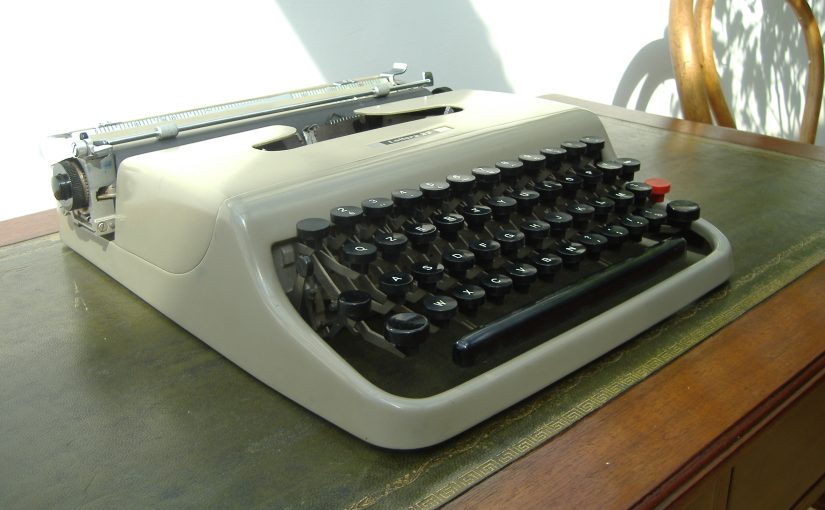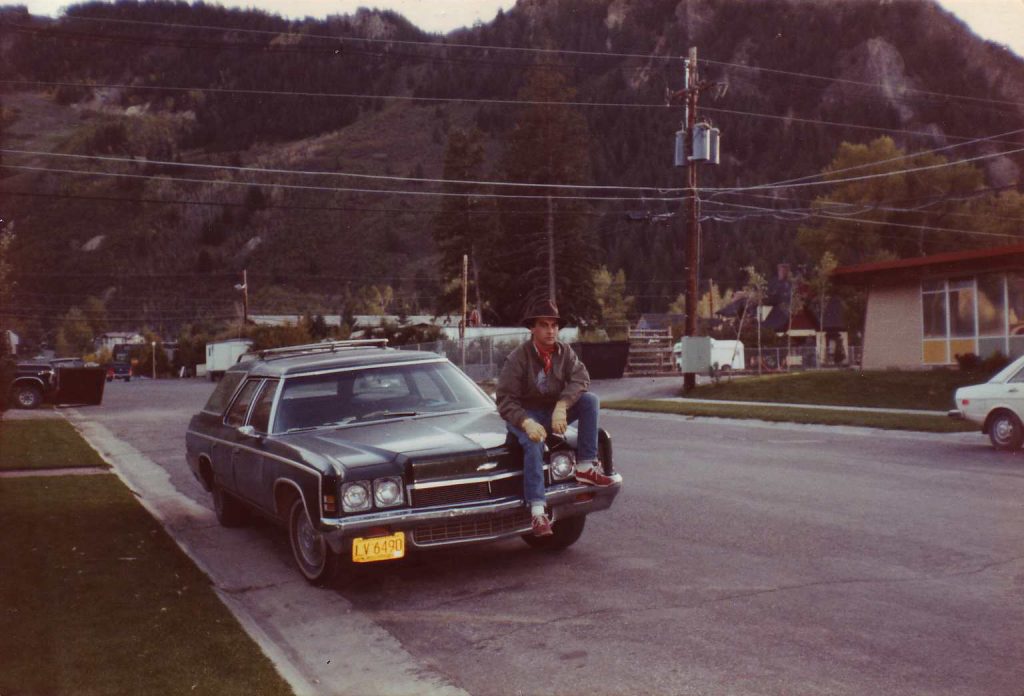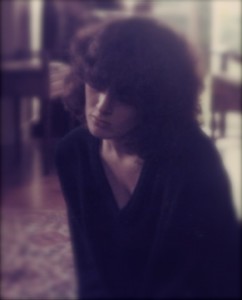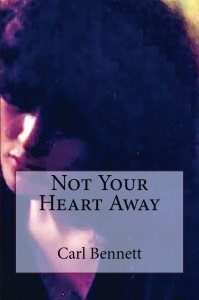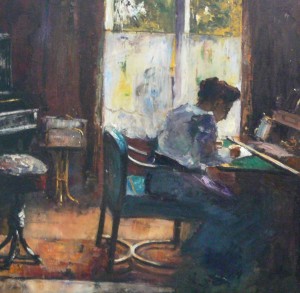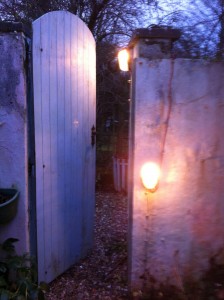It isn’t just at New Year that I’m reflective, but something about the season encourages it. I did three ultra-reflective things this week. Two of them were good, the other one I’m not so sure about.
The first was a walk. It wasn’t a very long walk, according to the magic Garmin solar watch my wonderful partner gave me for my birthday, but despite the cold wind it was a good one, and one I do most years. I met a man called Joe Shea three times in my life. He stayed at my house for ten days, twice, over ten year ago now, when he came to England for a memorial service to his squadron. He was American, from the absolute middle of Nowhere, Ohio and the first time he came to Leiston airfield was January 20th, 1945. He was eighteen. He flew P51 Mustangs back then, flying escort to the B17s and B24s flying out of Debach, Parham where I live now and any other airfield in the 8th US Army Airforce. His unit lost 82 men killed from that airfield; nothing much compared to the more than ten times that number who took off from Parham and never walked the ground again. The only difference was that Joe’s group flew single-seaters; here at Parham there were ten men in a B17 crew.
Joe’s stories weren’t much like the movies. For one thing, his group lost more airplanes to the weather than the Luftwaffe ever managed to put down. He told me about two separate occasions where flying out and coming back to Leiston on the coast here, there would be clear air with fantastic visibility up to about 50 feet in winter, then a layer of cloud, then clear bright sunlight above that, all the way to the stratosphere. And how once flying out and another time coming back, he was in a group of three airplanes going into the cloud and one of only two that came out. Those two are somewhere in the North Sea, just four miles away, not even two minutes after take-off, not even two minutes short of home.
It was foggy all the time back then, Joe told me. But it wasn’t. It’s foggy here about three days a year. It wasn’t fog. It was coal fires and temperature inversion, and maybe, for those three days, fog as well. It didn’t make any difference, but the films all leave out the fact that the people you’re protecting are actually a big part of getting you killed. If that didn’t do it then 18 year-olds charging around the sky at 450 mph, or making tight turns and finding their wings literally fell off, that would. Joe told me about seeing that. He told me about seeing bomber crews five miles up above the earth suddenly without an airplane that had disintegrated around them and there being nothing you could do except watch.
We had a famous airplane explode here, over the marshes near Southwold. President Kennedy’s older brother was flying it. It was packed full of explosives to destroy U-boat pens and the idea was that after take-off the pilot and co-pilot would arm the remote control system, parachute out and another aircraft would literally fly what was now a closely guided missile onto its target. It was a B24 Liberator, the same planes that flew out of Debach and when Kennedy switched the controls to Remote it blew the atoms of him and the co-pilot over about 20 square miles. Joe thought that was unremarkable when we visited a tiny part of the crash site.
He told me what he’d seen, over and again. Whether that happened because they took a direct hit from anti-aicraft fire flying straight on a steady heading, or whether as he seemed to imply, it was something about the airplane that made that happen didn’t matter. The result was the same. And all he could do was watch.
“Those things used to blow up as soon as they opened the bomb doors.”
So when I can get the time and the space on my own, at Christmas I go to the memorial on the old airbase and read out the names there. It’s always a surprise how many of the names are German. It sort of seems the least I can do. These days I have to add Joe’s name to the list. I do that last.
The other thing I did is something I do much more often, a regular-ish walk around Parham Wood, out of the farm gate, up to Silverlace Green, along the lane where usually in the afternoon there’s a little herd of deer, as there was today. Not the fat scuttling muntjacs that come into the yard and eat the plants, but proper roe deer, their heads about level with your shoulder, dark on top and almost silver underneath, their own camouflage on this old airfield. They don’t want to be near people and these were a good three hundred yards away, which suited us both.
I walked up the hill through a little hamlet so small it doesn’t even have a name, then took a shortcut on a footpath across a field, slipping on the stile. For some of the years I’ve been here the farmer has ploughed over the footpath through here; every year whoever else walks this field makes sure we trample down whatever gets planted where it shouldn’t be. This year the farmer’s done the sensible thing and run a tractor along the route of the footpath, showing everyone where it is and leaving a brown muddy stripe through the crop. That takes you across a little lane, then across another field, across the little bridge, skirting another field until you get to a fingerpost pointing down the hill you’ve been climbing, flanking Parham Wood.
I’ve got a detailed old map of this area, made in 1959 when the difficult path along the stream cutting diagonally across this route was officially described as a road. Someone here much older told me it was, and they used to take their children along it in a pushchair, but I can’t see how. Things change though. Also on that map there was a house at the corner of the wood.
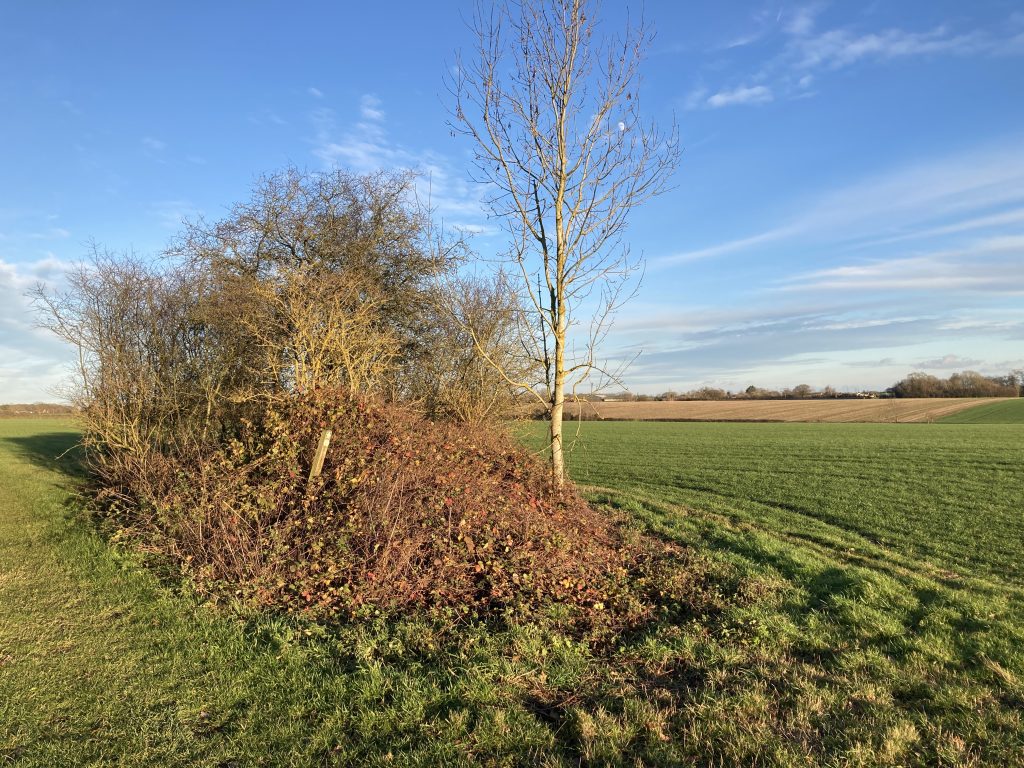
It was there in ’59.
On the left of the picture is Parham Wood, where once there was a Home Guard Auxiliary post, overlooking the railway that used to run from Framlingham to Snape. That’s gone, too. The odd thing about this disappeared house though, is where it is. There’s no road to it, just a track and not a big one at that. There are no telegraph poles, so no telephone and around here that probably also meant no electricity either. No mains drainage. And if it was like a lot of Suffolk farm buildings, no foundations either, which is probably why there isn’t a single brick standing now. The husband of the woman with the pushchair told me something odd though. He lived here all of his life. His family and then he himself owned a lot of the land around here, as well as this farm. He remembered when you couldn’t cross the airfield to get to Great Glemham after the war, because it was still fenced off and the road that was closed by the RAF in 1939 was still closed, over a decade after that. But he didn’t remember that house, at all. He was puzzled to see it on the map I have. Odd. It’s not even a mile away, well within small boy range.
Unsettling and comforting, dream and reality, fact and fiction.
The other thing wasn’t important. I re-read Not Your Heart Away, the book, as Ernie Wise used to say, what I wrote. When I was at school I found a copy of Keith Waterhouse’s Billy Liar, in a pile in the Music Room. I don’t know why it was there; it wasn’t on the syllabus for O or A Levels and it wasn’t set to music (although it did make it as a (OMG, OMG, OMG..) Julie Christie film and a nowhere-near-as-good TV serial). Being Billy Liar’s age (and irrespective of ten years later sharing a bar with Keith Waterhouse and thinking him something of a disheveled and drunken old arse rather than the sharp folk-hero I’d wanted him to be – see also Hunter Thompson ibid), I identified massively with Billy. OK, I didn’t live in a northern town, didn’t work in the town I grew up in for more than a week before I did what Billy didn’t, and managed to escape to London and didn’t get engaged even once, let alone twice simultaneously. But like Billy I’d got myself stuck with a girlfriend who although somewhat more enthusiastically accommodating than the dread Barbara in the book, wasn’t something I wanted to encourage long-term. The problem being I was massively in lurrrrve, with a capital LUR. And it wasn’t with her. That’s what my book turned out to be about, and it’s become my Billy Liar, something I re-read again and again, to the extent that sometimes I have problems recalling what parts are total fiction and which bits were actual things that happened or I know of that had happened, that I recycled and hung around the necks of my characters in Not Your Heart Away.
Read it. Buy it. Double my sales. It doesn’t fit neatly into any literary category, and certainly not into any commercial one I’ve ever found. I wrote it primarily because I wanted to read something like Billy Liar but based outside a big town, in the kind of place I grew up in, in the times I grew up in. I couldn’t find anything at all like that, so I wrote it. Friends have the same problem reading it. I’ve been asked about when I was driving that Aston-Martin, however many times I explain that yes, I have driven one and yes, that feeling was exactly the way I described in, but that was in my thirties, not when I was half-drunk stuck in a country pub that isn’t there any more. Tragically also, I didn’t do the real Claire, contrary to the needling the central character’s lifelong friend repeats for decades. And no, obviously that wasn’t her name.
I suppose if you can re-read something you wrote nearly ten years later and still think hmm, there really isn’t much I’d change, then it’s got to be sort of OK. OK enough to win the BBC Writer’s Room anyway, when I turned it into a screenplay. It was one of five winners out of three and a half thousand other scripts; the fact that life is totally unfair was demonstrated again when my very first pitch to my very first production company didn’t actually result in them making the film.
The b****rds.
Billy Liar was there in ’59 too. As Michael Caine used to say, not a lot of people know that. I didn’t until today. You do, now.
